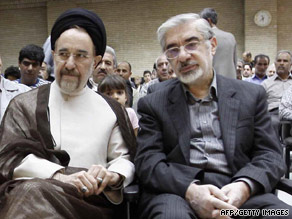 Things have been quiet here at the blog.
Things have been quiet here at the blog.No matter, though. Things have been exciting outside this blog. Thank GOD!
The revolution in the Arab world continues to deepen in Egypt, and for that we are thankful. In Libya, unfortunately, the counter-revolution stole the wave of people's rage before the revolution could even get started decently. And in Syria, the people's struggle to break a most brutal dictatorship continues on unabated and unbroken.
AND ... Thankfully, the people in the U.S. have finally been awakened to the fact that their system is rigged against them. The Occupy movement is a genuine and societal expression of the realization that people are NOT represented.
Movements need all forms of social tools in the course of their development. But, above all they need organization, which is the social tool to become and stay independent of the power structures. They need organization internally in the structures they build as they struggle, and they need organization in areas that define the quality of their relationships with the world outside them.
Movements also need good ideas. Revolutionary ideas that see the ever-present problems in a new frame, and for which there can be a remedy right now!
In this year-end note, we would like to submit once again our idea of Direct Representation for Taxation. The Occupy movement can potentially change the way the American society is organized. This is going to be a long struggle, however, and the opponents of the movement are some of the most powerful and most powerfully organized group of people on earth. So, at the early stages the movement needs to focus on objectives that are achievable but very costly for the system to concede on.
Emanuel Wallerstein has a good take on this. He says (to paraphrase) basically take the system at face value and force them to face up to the glorious propaganda they dish out, by calling them on it. They say this system is democratic, so fight to see how democratic it really is, and push the limits. I think Marx had the same basic approach: find the cracks in the system and push against them, and in that process you learn how to transform the system. The system does not change according to blue prints by social engineers, it transforms through the real and actual struggles that the people do put up, and within historical limits set by generations before them.
One great place where the system can be pushed to its limits is the question of taxation. And for that, we present below a case for pushing the limits on the taxation front.
Happy New Year to all the good people, to all those who fight for freedom and justice, and to the spirit of all the martyred in that fight!
Direct Representation for Taxation
The Occupy Wall Street movement, which has been spreading fast and wide, has sprung up in part in response to the social realization that 99% of the society is not represented in any form or shape.
As the police and city administrations in city after city move to destroy the Occupy movement's encampments -- and as we are barred from using our public spaces, the parks, the city hall grounds, the commons, to petition for redress of grievances -- new tactics will become necessary, in order to continue the occupation of various public spaces in different forms.
There are certainly a variety of demands present in the Occupy movement, but it can also be stated that there are fundamental commonalities in all the myriad demands that have brought the citizens to the point of having to take to, and occupy, public spaces in order to voice their grievances about the status quo.
One of those commonalities is the realization that 99% of the citizens recognize they are not represented by the system, as it is set up. They realize it's a fixed game, which by design disenfranchises them. The legislators answer only the call of their billionaire and corporate donors, and the lobbyists for those interests literally write the laws and the regulations. And now the people have expressed, in a loud form of a social rebellion of occupations, that they realize the system is setup against them. And they want it changed.
For the past thirty years, at least, no matter which dominant political party has occupied a majority in the Congress, and no matter who has been the president, there has been a steady and constant erosion of the benefits that the majority of the people have paid for in their taxes.
The corporations, meanwhile, pay a smaller and smaller portion of the overall taxes collected. In newspaper articles published back in 2004, it was reported that: "[A Government Accounting Office] report showed that 61 percent of US corporations paid no federal income taxes from 1996 through 2000, a period of rapid economic growth and rising corporate profits," (Boston Globe, April 11, 2004). The same article states: "The percentage of federal tax collections paid by corporations has tumbled from a high of 39.8 percent in 1943 to a low of 7.4 percent last year [2003]. But since World War II, the share paid by individual income tax filers has remained relatively stable, bouncing between 40 percent and 50 percent." This trend has continued to date, with sixty percent of corporations still paying no taxes, and some corporations such as oil companies even receiving tax rebates, collectively to the tune of tens of billions of dollars a year.
The debate about taxation has always been limited to who pays how much in taxes. The progressive taxation being that which gives the poor a relative break (there is always the sales tax to make sure that everybody pays up), and the rates increase as the incomes rise. The other way around would be regressive taxation, which has been in force since the offensive of the Reagan years. But, it's time to change the debate.
Time for a New Conception
The conceptual table can be fundamentally turned to the advantage of the 99%, however. The question of taxation can be connected overtly to the political dimension that it possesses. One need only remember that a major pillar of the American Revolution and the War of Independence that a third of the population of the original colonies conducted against the British overlords, was crystallized in the slogan, ‘No Taxation without Representation!’
Today, with the statistical sciences available and with the technology that is at hand, the representative for the taxes paid can be the very individual who pays the taxes. This can be the first real form of direct democracy to be implemented.
What does that mean? A new system of taxation can be one in which we the people dictate a priority list, submitting to the government our instructions for spending our tax money. In other words, at the same time that we hand our money over, we dictate to the government the order of priorities for the expenditure of that money.
So, for example, when paying taxes, the person paying the taxes can tell the government to spend, say, 20% of it on education for undocumented immigrants; 20% on the healthcare for the poor and the undocumented; 20% on environmental clean up in poor neighborhoods and towns; 15% on social infrastructure building in working class neighborhoods; 15% on job training and youth centers in working class neighborhoods; and 5% on proliferation of artistic activities among children in poor neighborhoods, etc. Individuals can choose any number of priorities, and rank them in any percentage they want to.
Such a demand for direct representation, by nature, will bring together all the ‘big-issues’ activists (such as anti-war people, the anti-imperialists, the socialists — i.e., the ‘Grand Narrative’ people) and join them with ‘single-issue’ activists in an immediate alliance, both strategically and organizationally. All the activists who are trying to bring about environmental change, those wishing to change the penal system and the medieval drug laws, those wishing to bring pressure on the government to spend more on healthcare, education, environmental cleanup and infrastructure, all those yearning for cleaner air, water, soil, and food, and all those wishing for more liberal arts education in our schools, and more resources in communities, such as libraries, youth clubs, clinics and hospitals can all unite around and push for a new system of taxation to help bring about a realistic mechanism for having control over the political-financial decisions that shape our lives.
The question of taxation is one that every man and woman can relate to. The current taxation system is the equivalent of a shopping situation, in which the shopkeeper demanded and got whatever amount of money he thought he could get out of you, and in return gave you whatever he wanted to give you!
The move for a tax reform for direct representation can start at the ballot-initiative level, state by state, thus building at the grassroots; a grassroots that can slowly, yet with a growing and realistic confidence, demand a new taxation as a practical necessity; this can in turn transform the way political power is wielded: dispersed and therefore more directly representative.
A movement for direct representation for taxation can ignite the imagination of those potential allies who are yet to be moved enough to join up in the struggle for social justice, and can help the Occupy movement grow.
Let us demand unashamedly and loudly: Direct Representation for Taxation!
NOTE:
See links below for more explanation of this taxation idea:
1) http://www.counterpunch.org/2007/07/07/tax-cuts-for-the-rich-only-benefit-the-economy-of-the-rich/
2) http://www.counterpunch.org/2005/11/03/taxation-or-racketeering/












